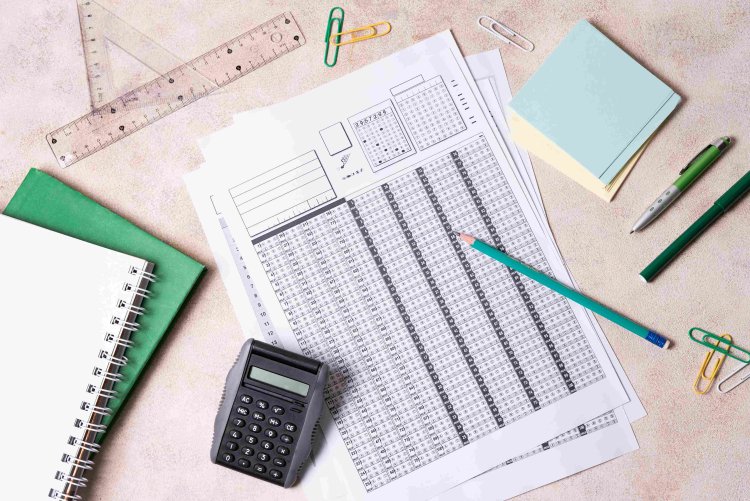Understanding the GCSE Grading System and What Each Grade Really Means
Understand the GCSE grading system from 9–1 and A*–G. Learn what each grade means, what counts as a pass and how it affects college admission.

It is vital for students preparing for GCSE exams to understand the grading system in depth. Having ample knowledge of the GCSE grading system helps students plan exam preparation and revision effectively.
In this blog, we explore in detail the GCSE grading system and what each grade really means.
What is the GCSE Grading System?
- The GCSE grading system is the scale used to assess the exam performance of pupils in the UK who take GCSEs, typically aged 14-16.
- The GCSE grading system has changed from letter grades such as A*, A, B, C, D, E, F, G, U to a 9-1 scale (with 9 highest,1 lowest, U = ungraded).
- The change in the grading system in England came in 2017 with a complete overhaul of the curriculum.
- The new GCSE curriculum is more challenging, and grade boundaries are tougher as well. With tough requirements, expert gcse tutors helping students boost exam results play a key role in reaching grade 8 or 9 in exams.
|
Old Grades |
New Grades |
|
A* A |
9 |
|
8 |
|
|
7 |
|
|
B C |
6 |
|
5 |
|
|
4 |
|
|
D |
3 2 1 |
|
E |
|
|
F |
|
|
G |
|
|
U |
U |
- Grade 9 is equivalent to a high A*
- Grade 8 is equivalent to low A* or a high A
- Grade 7 is equivalent to a low-grade A
- Grade 6 is equivalent to a high B
- Grade 5 is equivalent to a low B or high C
- Grade 4 is equivalent to low C
- Grade 3 is equivalent to D or high E
- Grade 2 is equivalent to a low F or G
- Grade 1 is equivalent to a low F or G
What does each GCSE Grade really mean?
Let’s explore in more detail what each grade implies, how many students typically get them, and what they might mean for future pathways.
-
Grade 9
- According to the new scale, 9 is the highest grade.
- Students who perform exceptionally well in the exam of a particular subject get a grade of 9 in that subject.
- Grade 9 makes your way to top universities and splendid careers easy.
-
Grade 8
- It is a high grade, but slightly lower than grade 9.
- Grade 8 indicates excellent performance. Opens the door for higher education and careers,
-
Grade 7
- It is aligned to grade A.
- Grade 7 is considered good. Students who secure this grade have good opportunities in future.
-
Grade 6
- In the previous grade system, it aligns with a strong B.
- Students who achieve grade 6 are well above the pass grade.
-
Grade 5
- Grade 5 indicates a strong pass.
- A grade 5 also opens up doors to many schools, colleges and employers.
-
Grade 4 (“standard pass”)
- Grade 4 is considered a pass grade.
- A grade 4 in English & Maths is required by various colleges and employers.
-
Grades 3 / 2 / 1
- Grades 3,2 and 1 are equivalent to older grades D/E/F/G.
- These grades indicate below-average performance.
- Students who achieve a grade 3,2, or 1 in Maths and English are required to resit exams to improve their grades.
-
U (Ungraded)
- A grade U means the student did not meet the minimum standard.
- Students who secure a grade of U must resit or explore alternatives.
What Grade Do Students Need to Pass the GCSE Exam?
Other than U, all grades are considered pass. However, many colleges, sixth forms require a Grade 4 in Maths and English.
What is a Fail in the GCSE?
Grade U is considered a fail in the GCSE.
Students who secure the grade U or who didn't reach the desired grade can:
- Speak to the sixth forms and colleges
- Appeal their grades
- Retake the exams
Conclusion
Students preparing for the GCSE exam must have a sound knowledge of its grading system. The letter grading system (A*, A, B, C) was replaced by the new 9-1 grading scale 9, 8, 77). Grade 9 is the highest, and U (ungraded)is the lowest. Many colleges, sixth forms, and employers require students to have at least a grade 4 in GCSE Maths and English.






















